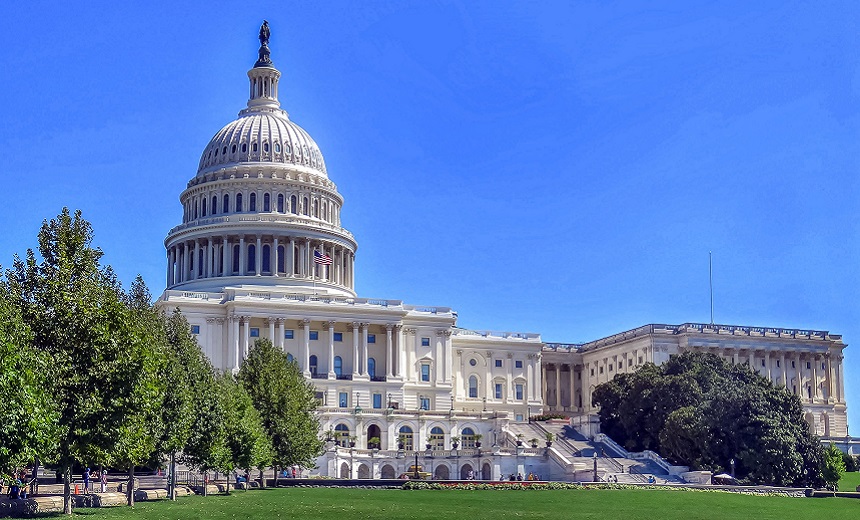Governance & Risk Management , Government , Industry Specific
Senate Passes Infrastructure Bill Boosting Cyber Funding
DHS, CISA Would Get More Money for Cybersecurity
On Tuesday, the Senate, by a vote of 69-30, passed a $1 trillion infrastructure spending bill that would provide additional money for cybersecurity over the next several years, including extra funds for the Department of Homeland Security and its Cybersecurity and Infrastructure Security Agency.
See Also: Enabling Government for Modernized IT
The Infrastructure Investment and Jobs Act will now be considered by the House. Some Democratic members of the House want to see changes in the measure, The New York Times reports. Plus, they're seeking promises the Senate will take up another broader spending bill before the House takes action on the infrastructure measure.
While the vast majority of the infrastructure spending bill is focused on such projects as repairing roads and bridges, it also contains security-related measures, including updating and modernizing the U.S. electrical grid and providing grants to state and local agencies to help them improve cybersecurity.
"The bill includes additional funding for cybersecurity and provides DHS with the resources needed to support response and recovery efforts for public and private entities impacted by cyberattacks," Alejandro Mayorkas, the secretary of the U.S. Department of Homeland Security, noted in a Tuesday statement.
Since the supply chain attack against SolarWinds was uncovered in December 2020, the Biden administration has sought to provide additional funding to the Department of Homeland Security and other federal agencies. For example, the $1.9 trillion economic relief package known as the American Rescue Plan provided $2 billion for cybersecurity and IT modernization (see: Relief Package Includes Less for Cybersecurity).
The White House's fiscal 2022 budget proposal also includes billions in spending for U.S. cybersecurity. The Senate is currently debating the full $3.5 trillion budget proposal (see: Biden Budget Seeks to Invest Billions in US Cybersecurity).
Cybersecurity Specifics
The infrastructure bill passed by the Senate would provide $1 billion in grants to state, local, territorial and tribal governments to improve their cybersecurity defenses. The Department of Homeland Security would distribute the money in separate blocks of grants between 2022 and 2025.
The bill also would allocate about $550 million to modernize and provide additional security for the U.S. electrical grid (see: 100-Day Plan to Enhance Electrical Grid Security Unveiled). It also would also set aside $20 million to be spent from 2022 to 2027 for a Cyber Response and Recovery Fund that would provide money to help federal and nonfederal entities recover from major cyber incidents.
"The legislation creates and funds the Cyber Response and Recovery Fund to provide greater support to help the private sector and state and local governments respond to and recover from significant cyber events, as well as establishing a grant program to address cybersecurity risks and threats to the systems of state, local, tribal and territorial government," Sen. Angus King, I-Maine, said in a statement. "These two programs will greatly strengthen the federal government’s ability to support key partners in the face of cyberthreats."
The Senate-approved measure also calls for spending $157 million to fund cybersecurity research at the Department of Homeland Security’s Science and Technology Directorate as well as $21 million to help establish the National Cyber Director office within the White House. In June, the Senate approved John "Chris" Inglis as cyber director (see: Senate Approves Chris Inglis as National Cyber Director).
Cryptocurrency
The infrastructure bill also includes stricter tax reporting requirements for cryptocurrency transactions as a way to help pay for the legislation's expenses, according to CNBC.
A group of senators attempted to amend the cryptocurrency section of the bill, including narrowing the definition of what it means to be a virtual currency "broker," but that amendment failed on Monday, according to The New York Times. The House will take up the cryptocurrency issue again when it considers its version of the spending bill.



















